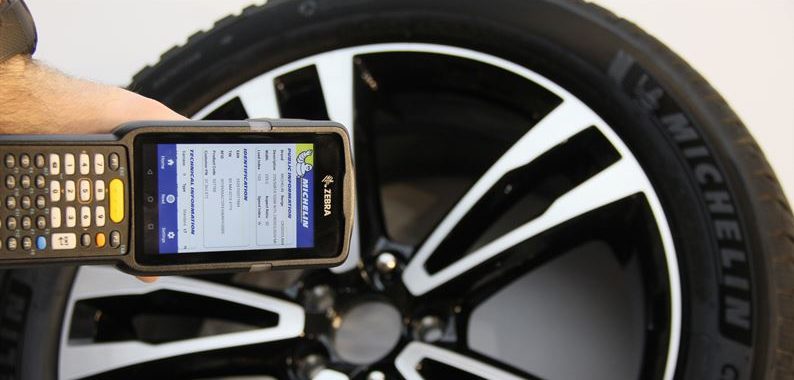Michelin says it is working toward equipping all of its automotive tires with RFID technology by 2023 and expects to have delivered up to 1,500,000 RFID-equipped car tires as early as 2020. It notes that among other benefits, RFID enables improved tire management from the factory to end of life as well as opening up possibilities for offering predictive maintenance services to improve driver experience.
“We are currently working with car manufacturers on the development of algorithms,” explained Michael Ewert, VP, global sales original equipment, Michelin. “Since RFID technology ensures this exact tire identification, it is conceivable in the future that drivers will see a tire status display next to their fuel gauge.”
Michelin highlights that tire condition monitoring will grow in importance, especially as vehicles become increasingly automated. It points out that a key advantage of RFID technology is that it is a relatively cost-effective way of identifying tires throughout their lifecycle and very robust compared to many other smart sensors.
The company also suggests that RFID technology will enable functions such as advanced driver assistance systems to adapt to specific tire characteristics, thanks to communication between the tire and vehicle. For example, it points out that a winter tire has different braking characteristics than a summer tire, which in turn can have an influence on the operation of a driver assistance system.
“This fine-tuning of driving safety systems, which is possible with the help of precise tire identification through RFID technology, will also be important for automated driving. We are convinced it represents a significant step forward in the tire industry,” concluded Ewert.



